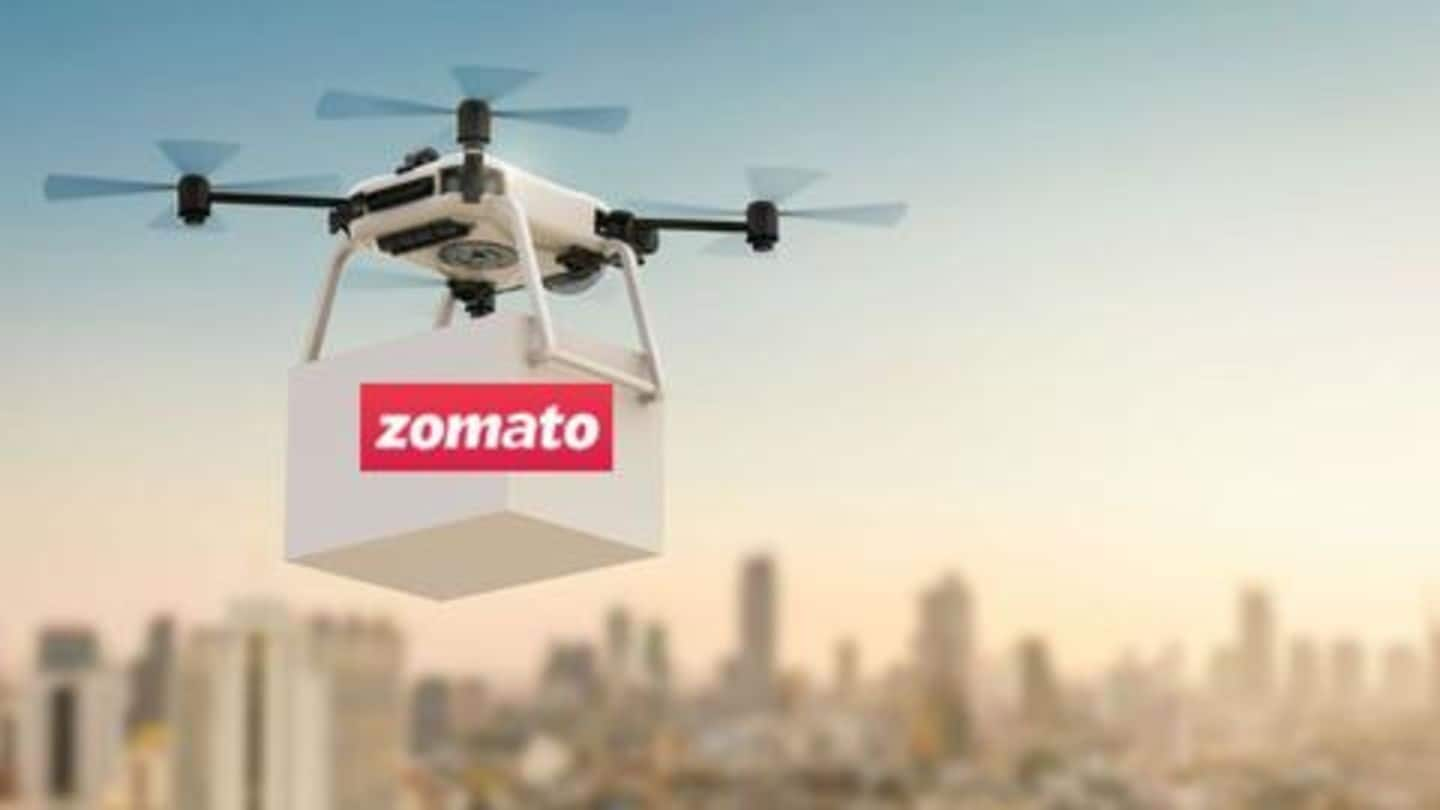
Swiggy, Zomato cleared to test long-range 'delivery drones': DGCA
What's the story
Soon, you may see unmanned aerial vehicles (UAV) flying in with your food orders.
The Directorate General of Civil Aviation (DGCA) has given start-ups like Swiggy, Zomato, and Dunzo a go-ahead for testing long-range drones.
The decision from the civil aviation regulator comes as the demand for contact-less deliveries continues to surge due to the outbreak of COVID-19 in India.
Here's more about it.
Approval
Approval for testing 'Beyond Visual Line of Sight' drones
The DGCA has cleared a consortium of 13 companies to test fly Beyond Visual Line of Sight (BVLOS) drones for deliveries, according to a report in The Economic Times.
The approved group includes hyperlocal delivery start-ups like Swiggy, Zomato, and Dunzo as well as aviation and drone-operating companies like SpiceJet, Throttle Aerospace, and Reliance-backed drone start-up Asteria Aerospace.
Flights
Test flights to begin in July
The approved companies are slated to begin the test flights from the first week of July.
As part of this, they will be required to complete at least 100 hours of flight time over areas designated by the Airports Authority of India by September 30.
The vehicles operated by the companies would be tasked with either carrying payloads or surveying the allotted regions.
Next step
Then, DGCA will examine flight logs for next steps
The logs detailing the two and a half months of test flights would have to be submitted to the DGCA.
Then, the regulator will examine the data and use it to frame policies for the movement of commercial BVLOS drones by the end of this year.
After that, companies may gradually move towards establishing a system of drone-based deliveries across parts of India.
Quote
COVID-19 pushed draft policy plans ahead
"Once they complete their flights and submit their logs, then we can really understand what will need to be the specifications required for BVLOS," an official told ET. "Our plan was to have draft policy out by August, but that got pushed because of COVID-19."
Advantages
Drone deliveries could help a lot of sectors
Interestingly, these local drone-based services would do a lot more than delivering food and daily essentials orders.
For instance, the vehicles, which are cheap to develop, could be used for delivering medical supplies, vaccines, and live organs from one hospital to another.
Then, they might also help streamline B2B logistics, especially in remote parts of the country.
Only time will tell.